
When you offer hummingbirds a yard where they can thrive, they will likely come back to delight you with their entertaining antics year after year. The good news is that they require very little-just food, water and protection-and it's easy to set your yard up in a way that helps hummingbirds flourish.
Rose of Sharon, a type of hibiscus, is a well-known favorite of hummingbirds, including this ruby-throat.
OFFER SECURE PLACES TO LAND
Hummingbirds hover, fly backward and dart straight ahead at speeds of 20 to 30 miles per hour-so it only makes sense that they would appreciate a spot to pause and reset. "Hummingbirds like to have a perch," says Sandy Lockerman, a federally licensed bird bander in Harrisburg, Pennsylvania, who estimates that she's banded some 4,000 hummingbirds in the past 12 years. "They'll sit and make sure nobody else is coming, watch for bugs and rest," she says.
A perfect perch could be a high, thin branch left to grow beyond the main growth of shrubs. Another option is purchased or homemade swings constructed from wire. Hang them on small trees or posts near nectar-producing flowers and sugar-water feeders, but high enough off the ground to protect from predators such as cats.
Also consider placing a perch near a bath to offer a preening station for wet hummingbirds. The ideal hummer bath is flat, shallow and outfitted with a mister or dripper. Or adapt a deeper traditional birdbath to better suit hummingbirds by filling it with rocks piled atop a small pump that creates a bubbling effect.
This story is from the {{IssueName}} edition of {{MagazineName}}.
Start your 7-day Magzter GOLD free trial to access thousands of curated premium stories, and 9,000+ magazines and newspapers.
Already a subscriber ? Sign In
This story is from the {{IssueName}} edition of {{MagazineName}}.
Start your 7-day Magzter GOLD free trial to access thousands of curated premium stories, and 9,000+ magazines and newspapers.
Already a subscriber? Sign In
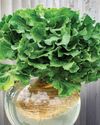
Basics of Hydroponics
Use these top tips and plant picks to have a successful soil-free garden
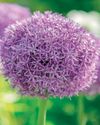
Rooted in Resilience
These hardy perennials will thrive in most zones
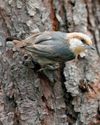
Social and Supportive
Brown-headed nuthatches take a helpful approach to raising their young

All About Owl Pellets
And why you should give a hoot about them
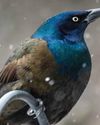
Ask the Experts
Advice from our pros about houseplants, bird feeding and more
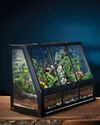
BRING THE OUTDOORS IN
Making a terrarium is about as close as you can get to a Zen DIY project. Once you have gathered the proper materials and squared away your plant selections, it's as simple as layering it all together and watching your mini ecosystem thrive. Here, I'll walk you through my foolproof process and cover all the required elements for good filtration, healthy soil, strong root growth and resistance against fungus and disease.

GROW THIS. NOT THAT
Six easy-to-grow houseplants—and six that may not be the right choice for you

Winter MAGIC
Forecasts may be frigid, but grab your binoculars because birding opportunities are still incredible
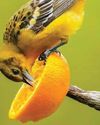
Sense or Nonsense? - Why some birds can taste and smell - but others can't
Does a porcelain berry taste like a blueberry to a gray catbird? Does a block of lard smell like frying bacon to a northern flicker? The short answer is no. While some avian species do have a well-adapted sense of taste or smell, they can't distinguish between flavors and odors the way humans can. They're not picking up every ingredient in the suet you put out, says José Ramírez-Garofalo, an ornithology researcher at Rutgers University in New Jersey and the director of Freshkills Biological Station in Staten Island, New York.

Maple Mania - Amazing facts about this fall foliage mainstay
Amazing facts about this fall foliage mainstay